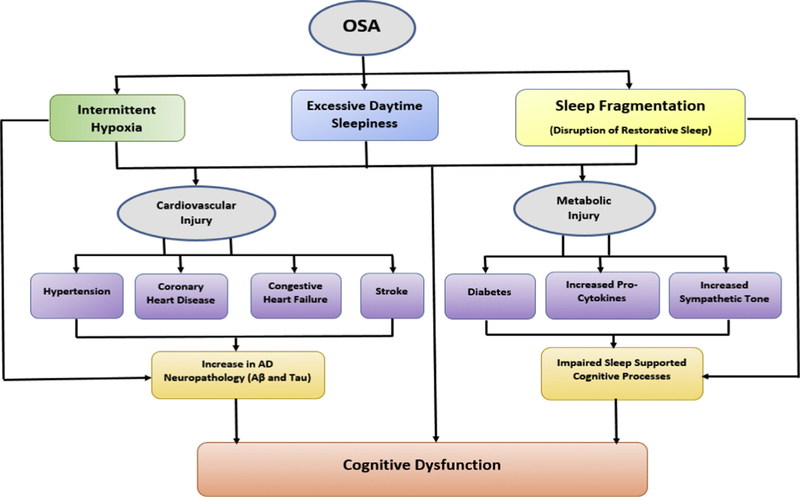Fig. 2.
Possible intermediate mechanisms in the relationship between OSA and Cognitive Dysfunction in the middle-aged. Chronic exposure to intermittent hypoxia, excessive daytime sleepiness (EDS), disruption of restorative sleep from sleep fragmentation and increase in AD neuropathology may lead to increased cognitive dysfunction. EDS and disruption of restorative sleep are more pronounced in the middle-aged relative to the elderly. Cognitive dysfunction is mainly mediated via cardiovascular and metabolic injuries. Cardiovascular effects of OSA including hypertension, coronary heart disease, congestive heart failure and stroke can also lead to increase in AD neuropathology while metabolic injury effects including diabetes, increased pro-inflammatory cytokines and impaired sympathetic tone from disruption of restorative sleep can further impair sleep supported cognitive processes. OSA, obstructive sleep apnea; and AD, Alzheimer’s disease.

